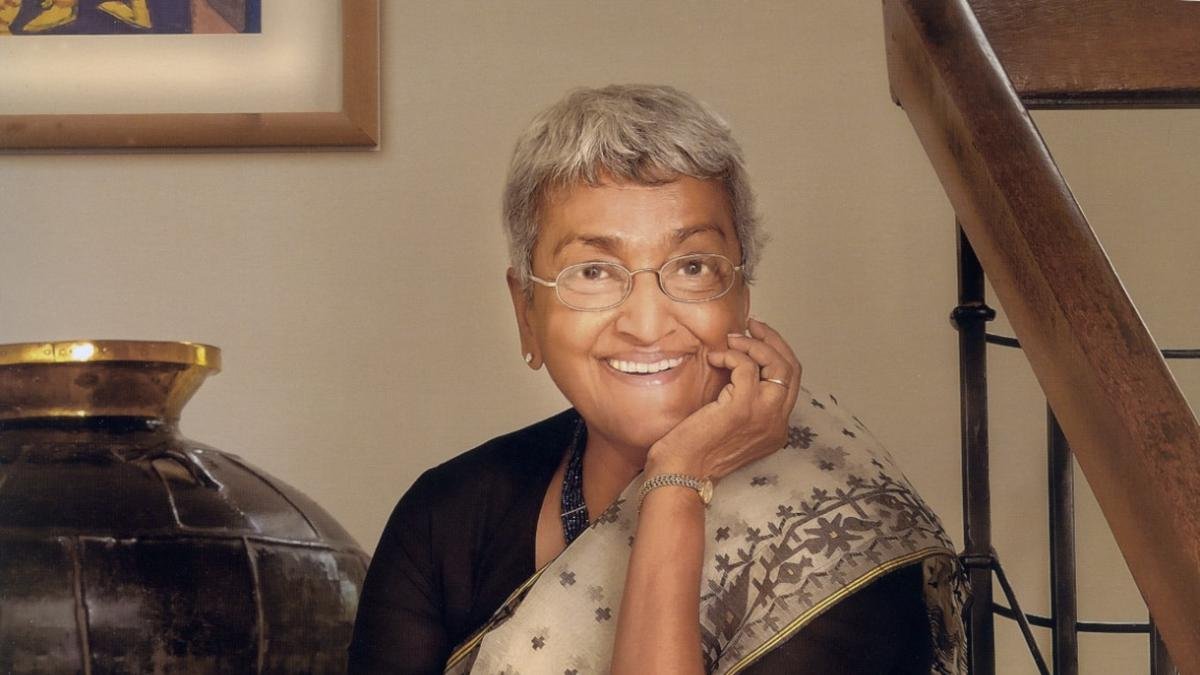Sara Abraham, the doyenne of contemporary Indian Art in the early Seventies, passed away peacefully, in the early hours of the August 4, 2024 at Chennai.
Mariam Ram was with her during her last hours, accompanied by her husband N. Ram.
Born into the distinguished family of Chalakuzhy Paulose Matthen and his wife, Eliamma Matthen in Travancore, Kerala, as it was then known, Sara was one of eight children.
Her father, K.P. Matthen was Managing Director of the Quilon Bank which eventually became one of the largest private banks in India, The Travancore National and Quilon Bank.
Sara’s father eventually moved to Madras, the financial hub of South India which was then the British capital of the Madras Presidency.
Sara, who was then eight years old, remembers the time the family lived in a large Madras Garden house, as these were known, on the tree-lined suburb of Chetpet bordering the Cooum River.
In time, Sara and her four sisters were sent to an Anglican boarding school in Darjeeling. This is where Sara discovered art under the guidance of an inspired art teacher. That early initiation, created in Sara the singular eye and instinctive ability to recognize original talent, during her later years as a collector and promoter of Indian art in its post-Independence evolution.
Later on, she was a part time student at the Government School (now College) of Arts and Crafts, Madras. K.C.S. Paniker, the Principal who went on to found the Cholamandal Artists’ Colony, included Sara in his vibrant collegiate of artists. In a similar way, she was able to connect with K.G.Subramanyam, or Manida, as he was to remain her mentor, when she went to Calcutta.
An early marriage to P.Z.Abraham allowed her the privilege of living in Bombay where she had perhaps the most exhilarating encounter with the young M.F. Husain. It was a time when modern Indian art and a new generation of art collectors were just beginning to recognize the explosion of creativity in the country.
It could not have been a better moment for a person of Sara with her unique vision to be able to nurture and create what would become her journey of discovery. The Kala Yatra, as she named it, became a moveable feast of contemporary Indian Art in all its manifold variety.
Sara Abraham spent her last day, playing ‘Single Patience’ surrounded by her Kala Yatra friends framed across the walls at her home in Chennai, not far from the Adyar River.
She leaves behind her daughters Mariam, Elisheba and her son Kuruvilla and their families.




